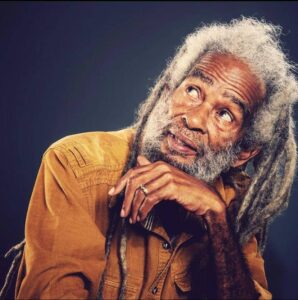
Illicit trade in cigarettes hurting Carreras
CARRERAS Limited, the major distributor of cigarettes in Jamaica, is set to make tax contributions of around four per cent (J$11 billion) of the $287 billion sought in this year’s national budget from taxes. The Government is looking for gross revenues of J$326.3 billion. However, this contribution may be affected if the earnings of the company are further reduced by the illicit trade in cigarette products in Jamaica, says Michael Bernard, managing director of the company.
Carreras, a subsidiary of British American Tobacco Company (BAT), is the exclusive local distributor of cigarette brands Dunhill, Matterhorn, Craven A and Rothmans, with approximately 99 per cent of market share. Musson Jamaica, which distributes Marlboro and Green brands, accounts for the remaining one per cent of the market. These brands are the only ones legally sold in the country. But on Wednesday, Dwight Blackwood, Anti-Illicit Trade (AIT) Manager at Carreras, displayed samples of More, Kool, Benson & Hedges, Newport and Beedis and counterfeit Rothmans and Marlboro which, he said, are being illegally imported and sold in Jamaica.
The illicit trade in counterfeit and contraband cigarettes is costing the Government millions of dollars in revenue, both at the ports and in the retail market where illegal traders circumvent the Special Consumption Tax (SCT) of $10.50 per stick and 17.5 per cent General Consumption tax charged on the products sold for approximately $35 each.
“For every three cigarettes that we sell, the receipts of two goes back to the government in the form of taxes,” Christopher Brown, head of corporate and regulatory affairs at Carreras, told Caribbean Business Report (CBR) on Wednesday.
Last year, Carreras reported a contribution of J$9 billion to Government coffers as a result of the taxes charged on the tobacco products. However, with the increasing trade in contraband and counterfeit products, all of which evade the tax net, Brown said that Carreras’ revenues will not be the only income stream affected.
“The fundamental concern is the revenues the Government receives from the SCT. The greater the emergence and presence of the illicit trade in the market, the less the Government is going to receive from us,” he said.
With the traders of the illegal cigarettes avoiding taxation, they can charge a cheaper price for their products. This lower cost is passed on to the purchaser, who, of course, wants the cheaper product. Carreras is calling on the Government to intensify its attack on the underground trade through the security forces and customs. “In light of the value of the investment to them, they must protect their revenue and dismantle the illicit trade,” Brown said.
Bernard says Carreras would play its part in helping to educate the consumer about the impact the illicit trade is having on the provision of public goods. He said given the vast contribution to the public coffers, a reduction in Carreras’ revenues will mean that much of Government’s activities will be limited as the illegal trade flourishes. Bernard said the follow-on effect would extend to public sector workers, whose salaries include the police, teachers and nurses and all who benefit from the National Health Fund (NHF) for assistance. Twenty per cent, or $2.2 billion of the tax receipts on the sale of cigarettes goes to the NHF, a health programme that provides medicines for a range of chronic lifestyle diseases for close to 500,000 Jamaicans.
There are two types of illicit trade in cigarettes, the first being products that are legally produced elsewhere but imported illegally into Jamaica. These cigarettes do not meet the Bureau of Standards requirement for labelling and packaging, evade taxes and violate the trademark rights of their owners. The second type are those that are counterfeit products. These are also illegally imported. However, these cigarettes are sometimes harder to detect because they may be packaged in accordance with the requirements of the Bureau of Standards. All legitimate cigarette products should be labelled with a ‘Chief Medical Officer’ warning placed at the base and occupying 30 per cent of the front and back panels of the package.
Bernard is calling on the co-operation of the police, legitimate traders, the Customs department and “law-abiding citizens” to help curtail the illicit trade. He said the authorities should block the supply while consumers should refrain from buying the counterfeit products.

























